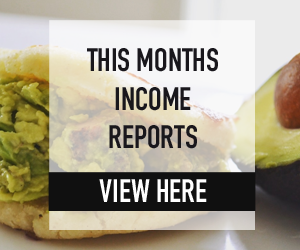How is the Healthcare System in Colombia?
Colombia is a country known for its vibrant culture, stunning landscapes, and delicious cuisine. But what about its healthcare system? If you are a foreigner planning to visit or move to Colombia, it is important to have a good understanding of the healthcare system in the country. In this article, we will explore the nuances of the healthcare system in Colombia and how it compares to other countries. So, let’s dive in!
What is the structure of the healthcare system in Colombia?
- Overview of the healthcare system in Colombia
- The role of the government in the healthcare system
- Public vs. private healthcare
The healthcare system in Colombia is a mix of public and private healthcare, with the government playing a significant role in providing healthcare services to its citizens. The Ministry of Health and Social Protection is responsible for the overall management and regulation of the healthcare system. The country also has a universal healthcare system, meaning that all citizens and legal residents have access to healthcare services, regardless of their income or social status.
There are two main types of healthcare providers in Colombia: public and private. The public healthcare system is known as the “Sistema General de Seguridad Social en Salud” (General System of Social Security in Health) and is funded by the government. The private healthcare system, on the other hand, is funded by private health insurance companies and individuals.
How does the quality of healthcare in Colombia compare to other countries?
- Availability of healthcare services
- Quality of healthcare facilities
- Medical professionals in Colombia
Colombia has made significant improvements in its healthcare system over the years, and the quality of healthcare in the country is generally good. The World Health Organization (WHO) ranks Colombia’s healthcare system as 22nd in the world, ahead of countries like Brazil, Mexico, and China. The country has a high number of healthcare facilities, including hospitals, clinics, and specialized centers, making healthcare services easily accessible to its citizens and visitors.
The quality of healthcare facilities in Colombia varies depending on whether it is public or private. Public healthcare facilities are generally well-equipped, but they may be overcrowded and have longer wait times. On the other hand, private healthcare facilities are more modern and have better amenities, but they can be expensive.
Colombia also has a high number of well-trained medical professionals, including doctors, nurses, and specialists. Many medical professionals in Colombia have received training and education in the United States and Europe, making them highly qualified and capable of providing quality healthcare services.
How much does healthcare in Colombia cost?
- Cost of public healthcare
- Cost of private healthcare
- Health insurance in Colombia
The cost of healthcare in Colombia is significantly lower than in other developed countries. As mentioned earlier, public healthcare services in Colombia are funded by the government, which means that they are free for citizens and legal residents. However, these services may have long wait times, and the quality of care may not be as good as in private healthcare facilities.
The cost of private healthcare in Colombia varies depending on the type of service and the location. In general, private healthcare can be expensive, especially for specialized services. It is recommended to have health insurance to cover these costs, which can be purchased through private insurance companies or provided by your employer.
What are the common health concerns in Colombia?
- Infectious diseases
- Altitude sickness
- Food and water safety
As with any country, there are certain health concerns to be aware of when visiting or living in Colombia. Some common infectious diseases in Colombia include dengue fever, Zika virus, and malaria. It is recommended to take necessary precautions, such as getting vaccinated and using insect repellent, to prevent these diseases.
Altitude sickness is also a concern in Colombia, particularly in cities like Bogota and Medellin, which are located at high altitudes. If you are planning to visit these cities, it is recommended to acclimatize slowly and stay hydrated to avoid altitude sickness.
Lastly, it is important to be cautious about food and water safety in Colombia. It is recommended to drink bottled water and avoid street food to prevent foodborne illnesses.
What should I do in case of a medical emergency in Colombia?
- Contacting emergency services
- Availability of English-speaking medical professionals
- Travel insurance for medical emergencies
In case of a medical emergency in Colombia, the first step is to call the national emergency number, 123. The operator will ask for your location and dispatch the nearest ambulance to your location. In major cities like Bogota and Medellin, there are also private ambulance services available, which may arrive faster than the national emergency services.
While most medical professionals in Colombia speak Spanish, there are also English-speaking doctors and nurses available, particularly in major cities and tourist areas. It is recommended to have a list of English-speaking medical professionals handy in case of an emergency.
It is also highly recommended to have travel insurance that covers medical emergencies when visiting or living in Colombia. This will provide you with peace of mind and financial assistance in case of a medical emergency.
Other ways people asked this question
- What is the healthcare system like in Colombia for foreigners?
- How does healthcare in Colombia compare to other countries in Latin America?
- What are the common health concerns for tourists in Colombia?
- Is it necessary to have health insurance in Colombia?
- Are there any specific vaccinations required for traveling to Colombia?













